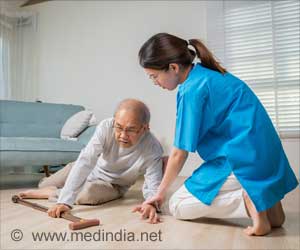How you think about your age may affect how you age, that's the conclusion of a research from Purdue University.
How you think about your age may affect how you age, that's the conclusion of a research from Purdue University.
"How old you are matters, but beyond that it's your interpretation that has far-reaching implications for the process of aging," said Markus H. Schafer, a doctoral student in sociology and gerontology who led the study. "So, if you feel old beyond your own chronological years you are probably going to experience a lot of the downsides that we associate with aging."But if you are older and maintain a sense of being younger, then that gives you an edge in maintaining a lot of the abilities you prize."
Schafer and co-author Tetyana P. Shippee, a Purdue graduate who is a research associate at Purdue's Center on Aging and the Life Course, compared people's chronological age and their subjective age to determine which one has a greater influence on cognitive abilities during older adulthood. Nearly 500 people ages 55-74 were surveyed about aging in 1995 and 2005 as part of the National Survey of Midlife Development in the United States.
In 1995, when people were asked what age do you feel most of the time, the majority identified with being 12 years younger than they actually were.
"We found that these people who felt young for their age were more likely to have greater confidence about their cognitive abilities a decade later," Schafer said. "Yes, chronological age was important, but the subjective age had a stronger effect.
"What we are not sure about is what comes first. Does a person's wellness and happiness affect their cognitive abilities or does a person's cognitive ability contribute to their sense of wellness. We are planning to address this in a future study."
Advertisement
"There is a tremendous emphasis on being youthful in our society and that can have a negative effect for people," Schafer said. "People want to feel younger, and so when they do inevitably age they can lose a lot of confidence in their cognitive abilities.
Advertisement
It will be interesting to see how, or if, these cultural norms shift as the Baby Boomer generation ages."
Source-ANI









